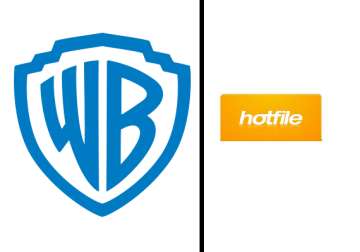Los Angeles, Sept 14: Hotfile, one of the biggest cyber lockers, launches counterattack on studio by demonstrating how the studio's anti-piracy efforts have led to thousands of allegedly wrongful file deletions.
The countersuit was filed yesterday in Florida District Court. According to the claims, Warners has "knowingly made misrepresentations and it has engaged in DMCA abuse on an unprecedented scale by grossly misusing the powerful anti-piracy software tool that Hotfile specially created at Warner's request."
Hotfile has been signalling this move. Over the summer, in response to a massive copyright infringement lawsuit that seeks to hold the company responsible for thousands of movies and TV shows illegally traded each day, Hotfile has been pushing the studios to open up about their anti-piracy investigation techniques and the rationales that lead a studio to send a takedown notice.
In particular, Hotfile has targeted Warner Bros., saying in its counterclaims that it created a tool called a Special Rightsholder Account that enabled Warners to delete or disable files that were believed in good faith to be infringing.
Hotfile says that beginning in April 2009, it gave Warners a "special privilege" but that the studio "betrayed that trust." Warners is alleged to have caused the deletion of thousands of files "when in fact Warner had no right to do so." In some instances, Warners is said to have deleted files based on the text of URLs alone. The countersuit also gives several examples of wrongful takedowns, including Warners deleting freeware software and demo games that had no apparent connection with the studio.
Hotfile also details Warner's supposed anti-piracy search method that led to errors. For instance, the studio is said to have made its piracy hunt too generic, looking to delete files that were titled "The Closer," "Seven," "O.C," "The Mask," "The Town,"...
That allegedly led to errors. For instance, Warners wanted to pull down infringements of its film The Box, only to allegedly delete files for an audio book entitled "Cancer: Out of the Box," by Ty M. Bollinger. Another example given is that the studio tried to take down copies of the show Fringe and instead pulled down a comment to a blog post that merely discussed the show.
It's also claimed that Warner Bros. was initially pleased with how Hotfile was responding to piracy and approached the company in 2010 with a business partnership whereby users seeking pirated content would be redirected to ecommerce links. The partnership never materialized.
The cloud storage company says that Warner's actions have harmed its reputation and business relationships and is claiming violation of the Digital Millennium Copyright Act, intentional interference with a contractual or business relationship, and negligence. Hotfile is suing for unspecified damages.
Warner Bros.declined comment.
